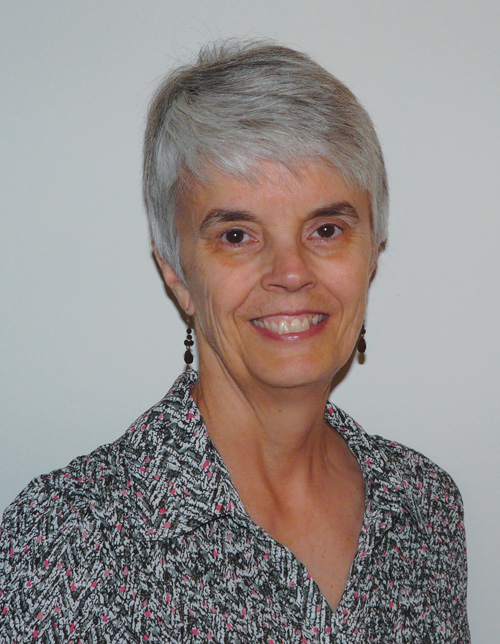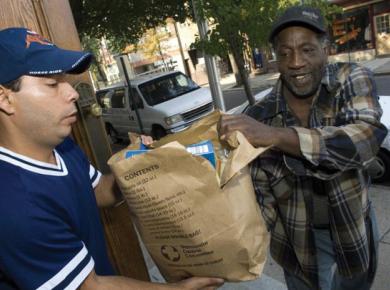Posted: May 19, 2016
Economic Inequality: Exploring our shared commitment to pursuing shalom
As a global communion of Anabaptist-related churches, we share a common commitment to pursuing shalom. In this pursuit, we believe in seeking justice and sharing our resources, be they material, financial or spiritual. Yet our tremendous diversity means that we carry out this commitment in very different ways. In the April 2014 issue of Courier/Correo/Courrier, leaders from across our fellowship write about different ways in which Anabaptists approach issues of economic inequality – and the ways we, as shalom-seeking followers of Christ, address the wealth gaps in our communities.
Repairing the Breach
Lately on American television, there have been frequent commercials from North America-based organizations asking for money to fight world hunger. The commercials tug at your heart, featuring sad-looking children, most of them African. One commercial notes that 17,000 children die each day from hunger, which apparently works out to one every five seconds. It’s heart-rending.
It’s also not the whole story. While hunger is certainly a problem in Africa, it often feels like these commercials ignore the issue of hunger right here in the United States and perpetuate stereotypes about “those poor people in Africa.” The United States is often described as the richest country in the world. So why, then, according to World Hunger Education Services, are 14.5 percent of households (or almost 49 million people) food insecure in the sense that at times “the food intake of household members was reduced and their normal eating patterns were disrupted because the household lacked money . . . for food”? How is it possible that one in seven people in the United States lives below the poverty line, including one out of every five children?
These stark facts about hunger and poverty in the United States are even more disturbing when you also consider the following: in 2007, according to the U.S.-based Center on Budget and Policy Priorities, the top ten percent of Americans earned 47 percent of the income and held 74 percent of the wealth, and this gap has not shrunk in the years since 2007. Or this: Over the past 35 years, the income of the top one percent increased 201 percent, while the income of the middle 60 percent increased only 40 percent, according to the U.S. Congressional Budget Office. It’s not that there isn’t enough wealth in the United States; it’s that it is unequally distributed – very unequally distributed.
Citing statistics like the ones above, U.S. President Barack Obama noted in December 2013 that the increasing inequality in the United States “challenges the very essence of who we are as a people . . . the idea that a child may never be able to escape that poverty because she lacks a decent education or health care . . . that should offend all of us and it should compel us to action. We are a better country than this.”
Why is there increasing economic inequality in the United States? The issue is complex with no easy answer to the question, but it seems clear that certain factors contribute to the problem. These factors include corporate business interests that take precedence over public policies that would be more just for everyone; fear of socialism and so-called “redistribution of wealth”; the belief that government needs to get out of the business of providing a safety net; and an attitude that people are poor because they have made bad choices and are not taking personal responsibility, and not because the system is often stacked against them. Cuts to the Supplemental Nutrition Assistance Program (SNAP, known more familiarly as food stamps) and long-term unemployment insurance, as well as an unwillingness on the part of some politicians to raise the minimum wage while simultaneously continuing tax breaks for wealthy individuals and corporations, are examples of policies that help to perpetuate inequality.
Economic inequality is a significant challenge for the American church, and we have often responded well. Many Christians (and others) are personally very generous with their time and wealth, volunteering for and contributing to organizations that help needy people. Many congregations have developed their own ministries or participate in community ministries that serve people who are poor and/or hungry. Yet despite our best efforts, economic inequality continues. The gap between the rich and poor widens. Generosity and practicing the “pure religion” of James 1:27 (helping the widows and orphans in their distress) are important scriptural imperatives to follow. But so are the injunctions to “do justice” and to create social systems that do not oppress and trample the needy (see Micah 6:8 and Amos 2:6-7). In our current context of significant inequality in the United States and elsewhere, the words of Isaiah 58:6-7 should challenge us every day:
Is not this the fast that I choose: to loose the bonds of injustice, to undo the thongs of the yoke, to tell the oppressed to go free, and to break every yoke? Is it not to share your bread with the hungry, and bring the homeless into your house; when you seek the naked, to cover them?
Isaiah goes on to promise that If we do these things, we will be called “repairers of the breach” and “restorers of streets to live in” – worthy goals to work toward in these days.
 Harriet Sider Bicksler is a member of the Grantham Brethren in Christ Church (Mechanicsburg, Pennsylvania, USA) and editor of Shalom!, a quarterly Brethren in Christ publication on peace and justice issues.
Harriet Sider Bicksler is a member of the Grantham Brethren in Christ Church (Mechanicsburg, Pennsylvania, USA) and editor of Shalom!, a quarterly Brethren in Christ publication on peace and justice issues.

Comments: